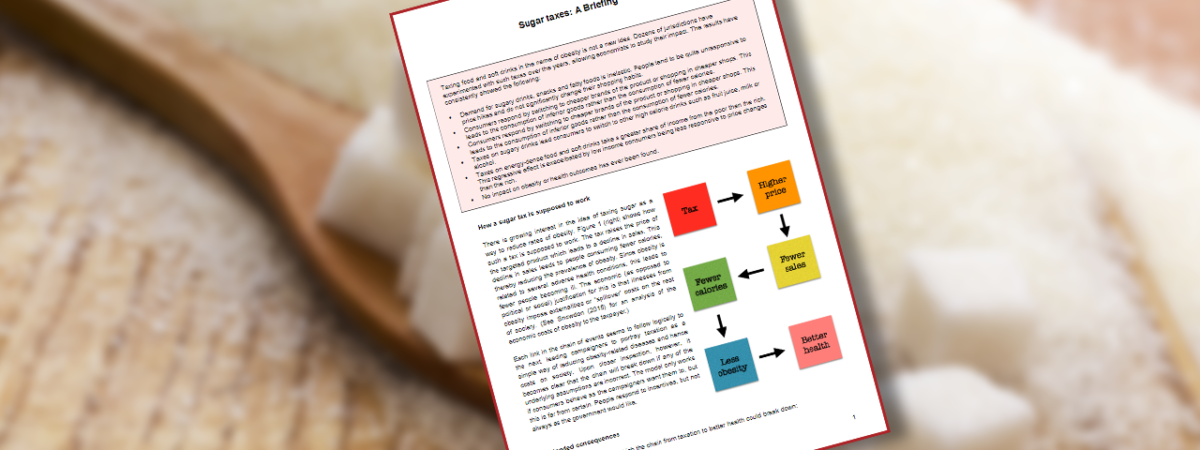And how much do you earn? Public pressure for regulation of pay
SUGGESTED


New IEA briefing shows sugar levy will cost taxpayers billions

Political intervention in wage-setting risks damaging UK employment
- Economics teaches that freely determined pay arrangements are likely to lead to optimal output and employment, with benefits to both employers and employees. Nevertheless politicians are increasingly under pressure to intervene in the determination of pay.
- Low pay is not synonymous with poverty, but politicians argue that higher minimum wages can help to relieve poverty without cost to the taxpayer.
- Minimum wages do not always work in a simple manner, but ultimately there is a trade-off between higher pay rates and employment, particularly if the level of the minimum wage is increased substantially. The recent introduction of the National Living Wage has politicised low pay in a potentially damaging way.
- The existence of a ‘pay gap’ between groups of workers is not necessarily a sign of discrimination. The government’s planned publication of ‘league tables’ could have undesirable side-effects on women who are supposed to benefit.
- High pay for company executives is only one manifestation of the market for talent; others include high pay for sportsmen and entertainers. Government changes in company structure and regulations on paysetting are unlikely to resolve the issue, but could create difficulties for the UK if multinational businesses decide to delist.
- The government needs to be wary of continually making concessions to single-issue pressure groups; in the nature of things there is no organised opposition to continual intervention over pay.
- Minimum wages should be simplified, the Low Pay Commission should have its authority restored, and Scotland should be able to set its own minimum wage rates.
- A better approach for the government to try to address poverty would be to review policies which raise the prices of food, energy and housing for the poor.
- The government should abandon planned publication of gender pay gap league tables and encourage a more sophisticated analysis of pay differences between a range of different groups.
- If high pay is felt to be a problem, it should be dealt with through simplifying the tax system and eliminating loopholes. This would affect all very high earners, and not just those who take on the responsibilities of running our great businesses.
2016, Discussion Paper No. 73
This paper featured in City AM, The Sun and the Daily Mail
Fullscreen Mode




